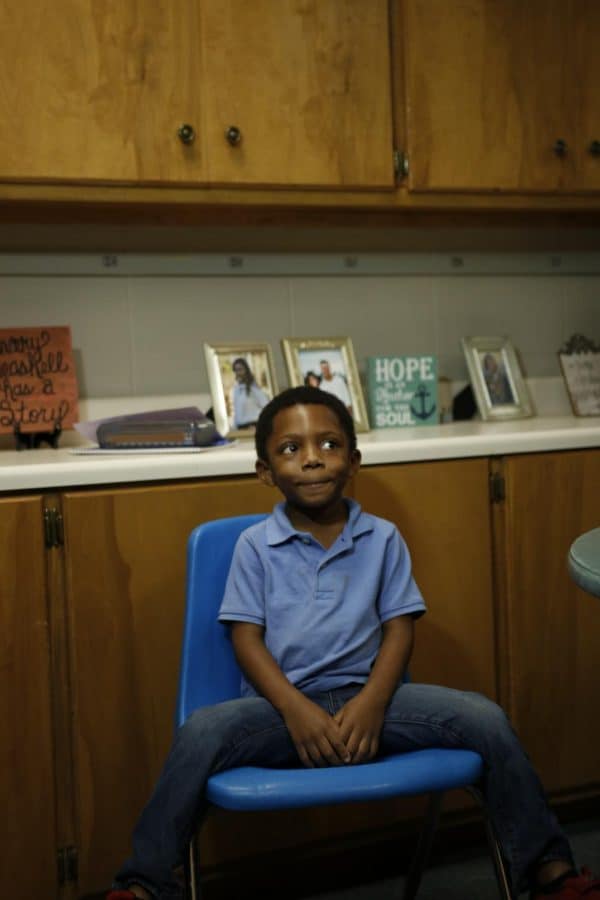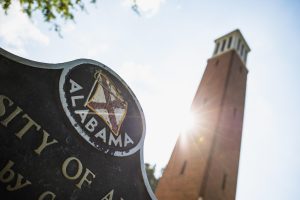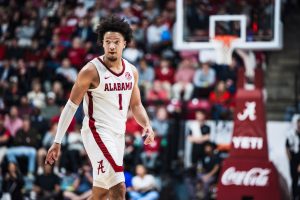UA students provide preschool vision screenings
October 1, 2018
University of Alabama work-study students conducted a vision screening at Flatwoods Elementary school on Sept. 24. The students used high-tech cameras to screen a class of 36 preschoolers for a wide range of vision problems, from signs of poor eyesight to more significant eye conditions, such as amblyopia or cataracts.
These students work for the UA Center for Ethics & Social Responsibility (CESR) as a part of FocusFirst – a statewide vision screening effort that the University leads with nonprofit Impact America. Within the comprehensive vision screenings, UA students use advanced cameras that have proven more efficient at predicting vision problems in children than traditional methods.
“Screening the students is very important because it helps them to see and learn,” said Haleigh Lankster, a sophomore majoring in marketing and one of the students participating. “The kids are so fun to screen, they’re always saying crazy stuff.”
If a problem is detected, FocusFirst students advise families on what to do next. FocusFirst partners with Sight Savers America in order to provide follow-up care to the children, completely free of charge.
During the 2017-2018 academic year, 59 UA students participated in screenings in 12 counties throughout Alabama, reaching nearly 3,000 children. Participation in the FocusFirst initiative has contributed to Alabama’s status as the No. 1 state in the nation for addressing vision problems in young children.
“FocusFirst is the most comprehensive vision screening initiative,” said Hunter McNutt, the FocusFirst coordinator. “No other state has this kind of comprehensive vision screening initiative or reaches as many young children as we do.”
This past Monday’s trip to Flatwoods was just the beginning of a busy semester for FocusFirst students. Throughout the semester, the program will visit youth in an additional 55 childcare centers and schools. By the end of the semester, they will have provided screenings to approximately 1,500 children, ranging in ages from six months to five years.





















